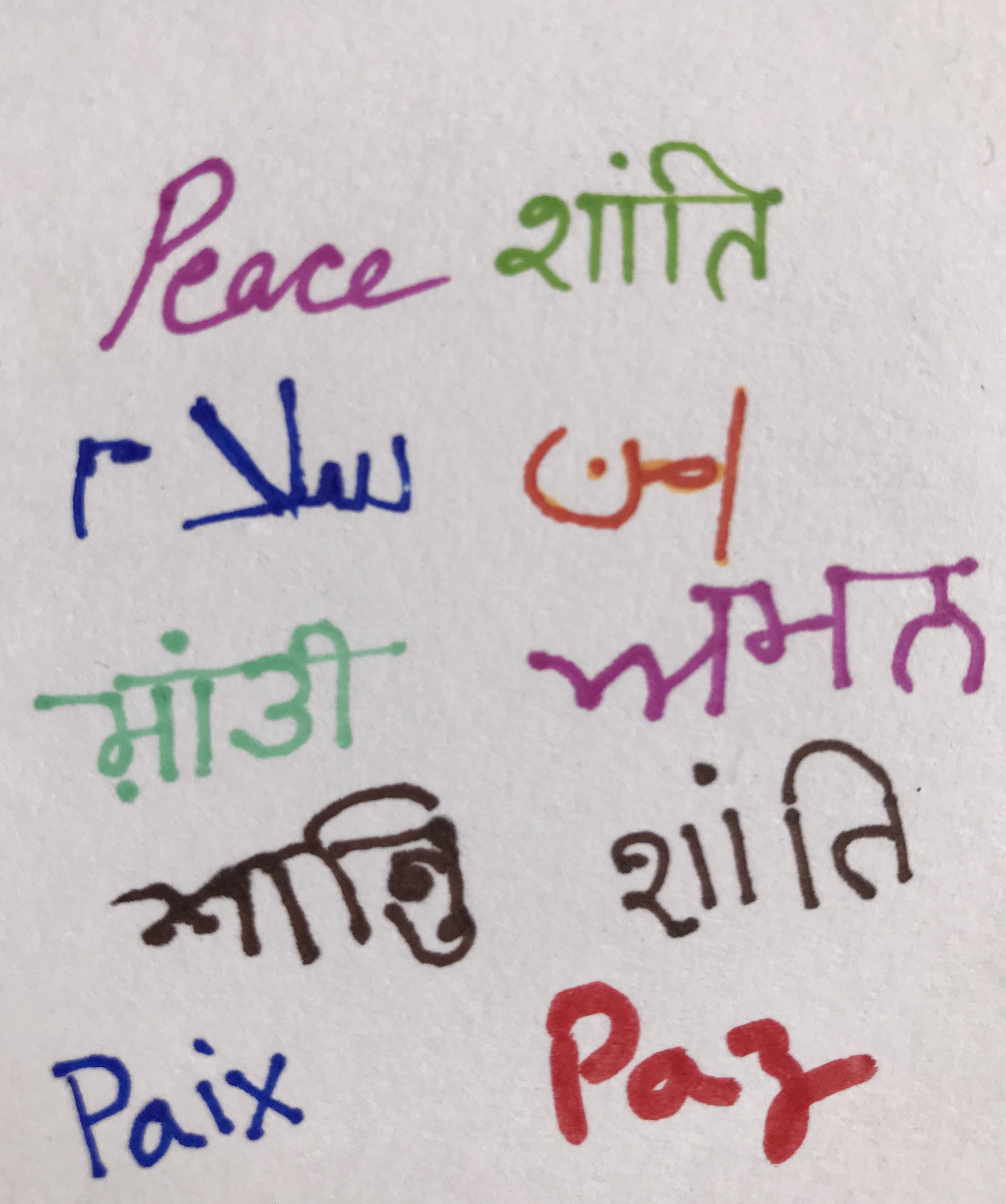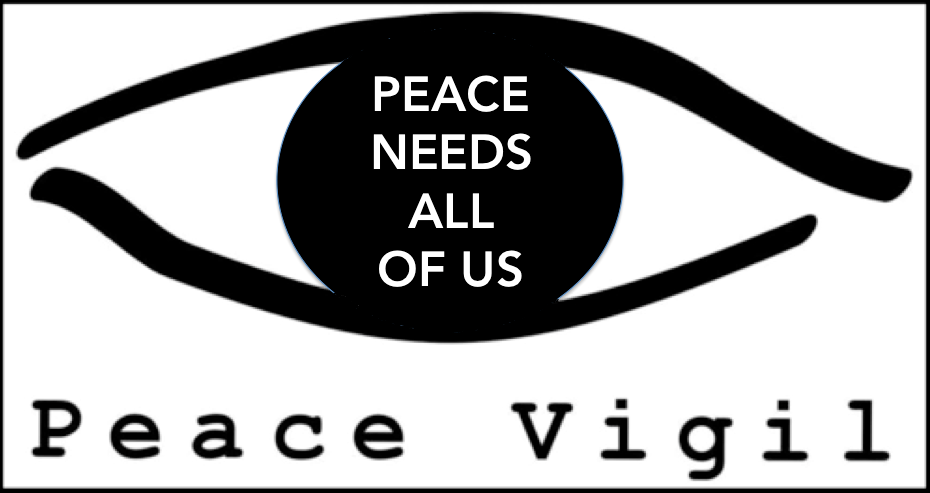Miss Levi and Desmond Tutu
Greetings of peace!
My English teacher, Miss Levi would often say, “Select the correct words. If you don’t choose the correct words for what you want to say, you will very likely be misunderstood.”
Her advice is applicable to the world beyond the English classroom. The current state of affairs is such that most of us are feeling helpless. Repression has reached unprecedented heights, protest has become a crime, the powerful are more arrogant and ruthless than they have ever been and gross injustices are being committed with impunity. In such dire circumstances, the way we frame our opposition – whether individually or in partnership with others – is going to define what we want for the future. Afterall, it is in the bleakest of times that transformational struggles take place. If we our words don’t explain exactly where we stand, we might not only end up being misunderstood but actually strengthening the very forces we oppose.
Be specific
In other words, when it comes to the multiple extreme crises gripping humanity at the moment, we must speak with a very clear understanding of A) what we oppose and B) what we want. Let me explain with an example. A genocide is a very very serious issue. There is absolutely no denying that a genocide is taking place in Palestine. Anyone with even the slightest interest in truth knows this. So, genocide is not a word we should hesitate to use when expressing our stance on what is being done by Israel and its supporters. What we are asking should also be clear. We want an end to the genocide immediately and permanently. We also want the guilty to be brought to justice under international law.
Similarly, the dictatorial steps being taken by the Trump administration against the functioning of the United Nations are exactly that – dictatorial. It is another word that is not an exaggeration. It is the reality and we must not hesitate to use it to describe exactly what we are opposing. Exercising its veto power to block efforts of the overwhelming majority of the world to stop a genocide is dictatorial. The latest veto by the US on September 18 is the sixth time it has blocked a UN Security Council (UNSC) resolution in the last two years aimed at stopping the mayhem in Gaza.
What is our clear ask in this context? To stop anyone from preventing the UN from doing what it is supposed to do – promote peace and cooperation and protect human dignity as its primary duties. The UN cannot fulfil its mandate if it is held hostage by a handful of powerful and unaccountable players who neither care about international laws made with democratic consultation nor for the judicial agency created to uphold these laws – International Court of Justice (ICJ).
The UN must be able to do its job. We ask that provisions be made to make this possible including the removal of the veto power of the five permanent members of the Security Council. What is the point of having an international inter-governmental institution if out of the 193 member states only five have the power to decide what should and should not be done and can even overrule the will of almost everyone else?
I have taken the example of the genocide of Palestinians by Israel and its supporters as it is the most pressing international issue for peace educators like me. But the idea of choosing the correct words for describing our opposition to other horrible injustices taking place and what we are asking for is of the same import.
For example, when we are objecting to the demonization and persecution of immigrants in the US, it will be a huge shame to get into the trappings of the “good” vs. “bad” immigrant or the “legal” vs. “illegal” one. The real concern here is how human beings are being treated and how the checks and balances in the legal system of the US are being destroyed to punish them. Moreover, it is alarming that hate, intolerance and violence are being promoted as patriotic.
Terrorist vocabulary is the opposite of peace vocabulary
“Cockroaches”, “vermin”, “breeding”, “annihilate”, and such words are the staple of those who use brute force to establish their perceived racial superiority The Nazis used them, the apartheid government in South Africa used it and the Zionists are using them too. The Zionists have used a language for Palestinians that is not just inspired from but often the exact one that Nazis used to describe Jews, Communists and others that they killed. They justify their actions by dehumanizing their victims in the most vile manner.
People who stand for human rights and a peaceful society that respects diversity use a very different language. We talk of justice, dignity and universal human values. We talk of human rights and their protection. We talk of international law. We don’t talk of “destroying” people or threatening anyone with shelling, raids, bombing, rape and pillage. We ask for bringing perpetrators of crimes against humanity to justice. We support legislative action conducted through ICJ and other international legal bodies such as the International Criminal Court (ICC).
But they don’t care
It is a valid concern. The UN as it stands right now doesn’t have the power to stop anyone. The perpetrators of a genocide have not only addressed and mocked the UN members as if they were disciplining a set of misbehaving students but have even prevented members from attending sessions.
The same goes for Trump administration’s decrees and actions in the US. It seems as if nothing can put a break on the madness of a racist and anti-poor administration.
But if we look carefully, whether they are Nazis or Zionists or any other hate and war mongers, what irritates them the most is criticism. It is clear that what threatens them the most is when people refuse to ignore their actions, when they stand up and question them, when they come to protest on the street, when they ask questions in social media and the free press, when they approach the judiciary to intervene and when they just refuse to be intimidated.
That, my friends, is our strength.
So stick with it
Speaking against injustice means your conscience is alive and healthy. It is your strength.
To not speak or to only pray that injustice and oppression will pass has never worked. It may give us a temporary sense of security but it ultimately is self-destructive. In the words of Desmond Tutu, who prayed as well as worked to end apartheid: I wish I could shut up, but I can't, and I won't.
Speak out – remember its your strength - and don’t forget Miss Levi’s advice. Our words should register our protest to injustice in no uncertain terms and they should reflect our belief in human dignity.
Shirin,
Peace Vigil
Peace Needs All of Us!




